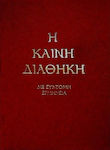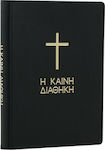from Protoporia
Skroutz Buyers Protection
Set the delivery location to see products according to your choice.
 AustriaEnglish
AustriaEnglish BelgiumEnglish
BelgiumEnglish BulgariaБългарски
BulgariaБългарски CroatiaEnglish
CroatiaEnglish CyprusΕλληνικά
CyprusΕλληνικά CzechiaEnglish
CzechiaEnglish EstoniaEnglish
EstoniaEnglish FinlandEnglish
FinlandEnglish FranceEnglish
FranceEnglish GermanyDeutsch
GermanyDeutsch GreeceΕλληνικά
GreeceΕλληνικά HungaryEnglish
HungaryEnglish IrelandEnglish
IrelandEnglish ItalyEnglish
ItalyEnglish LatviaEnglish
LatviaEnglish LithuaniaEnglish
LithuaniaEnglish LuxembourgEnglish
LuxembourgEnglish MaltaEnglish
MaltaEnglish NetherlandsEnglish
NetherlandsEnglish PolandEnglish
PolandEnglish PortugalEnglish
PortugalEnglish RomaniaRomână
RomaniaRomână SlovakiaEnglish
SlovakiaEnglish SloveniaEnglish
SloveniaEnglish SpainEnglish
SpainEnglish SwedenEnglish
SwedenEnglish
© 20[0-9]{2} Skroutz SA All Rights and Lefts reserved. FAQ | Terms of use | Privacy Policy | Cookie Policy

from Protoporia
Skroutz Buyers Protection


Religion & Metaphysics Books





Religion & Metaphysics Books

Religion & Metaphysics Books


Religion & Metaphysics Books


Prices are calculated for:Luxembourg, Other Payment Options
For a long time, modern scientific thought has advanced with absolute certainty. After managing to overcome the initial difficulties of decoding and reading the "book of nature," it began to overthrow one after another the "castles" of human ignorance. The successes of the scientific methods of Western civilization were accompanied by an unprecedented spread of Western lifestyle standards. The sense that everything can be explained, everything can be achieved in the near or distant future, and that the conditions of human life will improve sooner or later prevailed in most social groups on the planet.
In addition to the fields of application and the description of the processes of the natural world, scientific research has also progressed in the construction of broader interpretive structures in order to explain natural phenomena, to answer questions about why things are the way they are and not otherwise. The successes in this specific field reached the extremes of research. The principle of the Universe, the structure and composition of regions located at huge distances from Earth, the origin of life, the processes of the infinitely small microscopic particles of matter, and the functioning of many other areas of knowledge were incorporated into absolutely logical or plausible interpretive patterns. Scientific thought realized, therefore, that essentially there was nothing outside its interests and soon developed the ambition to unify its methodological instruments under unified theoretical frameworks.
However, the classical representational views, which were largely based on mechanistic models, had begun to be shaken. The new geometries, the reorientation of estimations about space and time brought by the Theory of Relativity, quantum indeterminacy, Kurt Gödel's Incompleteness Theorem, as well as other related discoveries, gave rise to second thoughts about human capacity for perception, understanding, and interpretation of physical reality. Interpretive searches turned to new, unconventional directions for conventional scientific thought. The role of human consciousness in observation, as proposed by the prevailing interpretation of Quantum Theory, and the demands of variations of the Anthropomorphic Principle are some of the new types of products discussed by the scientific community. References to religious perceptions and the renewed participation of theological views in innovative interdisciplinary reflections are becoming increasingly dense. The diverse interest in ecclesiastical and theological perspectives on issues related to ethical objections raised by the new applications of scientific knowledge simply confirms this trend. [...]
Specifications are collected from official manufacturer websites. Please verify the specifications before proceeding with your final purchase. If you notice any problem you can report it here.